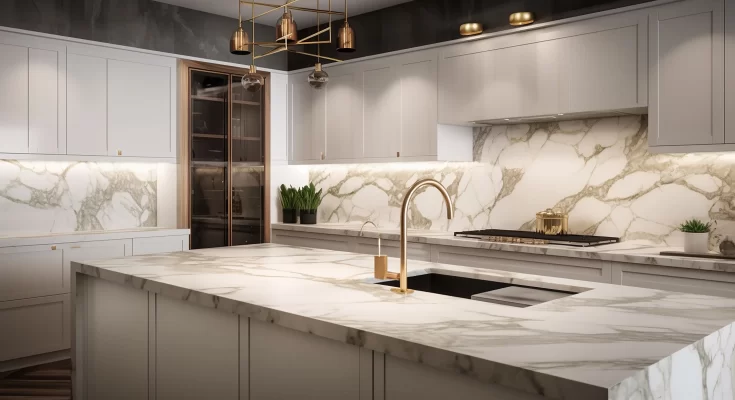In recent years, the quest for eco-friendly alternatives has become paramount in various industries, including home construction and interior design. Amidst this trend, quartz countertops have emerged as a popular choice, offering not only aesthetic appeal but also significant environmental benefits. Let’s delve into the eco-friendly aspects of quartz countertops, with a special focus on “comptoir quartz“.
Sustainable Sourcing:
- Quartz countertops are primarily composed of natural quartz crystals, one of the Earth’s most abundant minerals. Unlike traditional stone countertops, which require extensive quarrying and mining, quartz countertops are manufactured using a blend of quartz aggregates, resins, and pigments. This manufacturing process significantly reduces the environmental impact associated with quarrying, making quartz countertops a more sustainable option.
Reduced Waste:
- The production of quartz countertops involves recycling and repurposing quartz byproducts from mining and manufacturing processes. These byproducts are crushed and combined with resin to create durable slabs, minimizing waste and promoting resource efficiency. By opting for quartz countertops, homeowners contribute to the reduction of landfill waste and the conservation of natural resources.
Energy Efficiency:
- Compared to other countertop materials such as granite or marble, the production of quartz countertops requires less energy. Manufacturers utilize advanced technologies to streamline the manufacturing process, reducing energy consumption and greenhouse gas emissions. This energy-efficient approach aligns with eco-friendly principles and contributes to a more sustainable future.
Durability and Longevity:
- Quartz countertops are renowned for their exceptional durability and longevity. Unlike natural stone countertops, which may require frequent sealing and maintenance, quartz countertops are non-porous and resistant to stains, scratches, and heat. Their long lifespan reduces the need for frequent replacements, thereby minimizing the environmental impact associated with manufacturing and transportation.
Low Volatile Organic Compounds (VOCs):
- VOCs are harmful chemicals emitted by certain building materials, including some countertop surfaces. However, quartz countertops are inherently low in VOCs, thanks to the use of environmentally friendly resins during manufacturing. This ensures better indoor air quality and promotes a healthier living environment for homeowners and their families.
In conclusion, “comptoir quartz” countertops offer a compelling blend of style, functionality, and sustainability. By embracing these eco-friendly surfaces, homeowners can enjoy the beauty of natural quartz while minimizing their environmental footprint. From sustainable sourcing to energy efficiency and low VOC emissions, quartz countertops exemplify the principles of responsible design and eco-conscious living.




